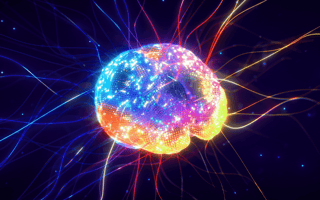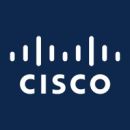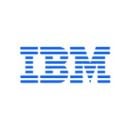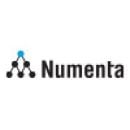In 2011, game show fans witnessed an unusual episode of Jeopardy!. Two of the three contestants were top champions Ken Jennings and Brad Rutter. The third was an IBM computer named Watson.
Watson, running software called DeepQA, had been fed zillions of pages of information from encyclopedias and open-source projects for a few years before the match. Watson’s prep work paid off as Watson beat both champs in that game. “I, for one, welcome our new computer overlords,” said Jennings, riffing on a memorable quote from The Simpsons.
13 Cognitive Computing Technologies Companies
- Accenture
- Alteryx
- AWS Machine Learning
- Beyond Limits
- C3.ai
- Cisco Cognitive Intelligence
- Cognitive Scale
- Cornerstone OnDemand
- Cogito
- Deepmind
- IBM Watson
- Numenta
- Qubole
What Is Cognitive Computing?
Watson’s competitive edge was cognitive computing. Cognitive computing mimics the steps the human brain takes to solve problems. A distant relative of Watson, Deep Blue, a computer that beat world chess champion Gary Kasparov in a six-game match in 1997 (Kasparov won their first six-game match in 1996) is not cognitive computing because it was able to choose from hundreds of millions of moves, plus “see” 20 moves ahead, a feat which no human to date has been able to perform.
Cognitive computing is also not artificial intelligence, though the two phrases are sometimes used interchangeably. Cognitive computing needs human assistance — for instance, humans fed Watson the info it needed to compete in and win the Jeopardy! match. AI, for its part, uses algorithms to make its decisions.
While AI and cognitive computing are not synonymous, AI is one of the building blocks for cognitive computing. Cognitive computing also employs machine learning, deep learning, neural networks, natural language processing, robotics, expert systems, speech and object recognition and robotics.
To mimic human brain processes, cognitive computing systems must be adaptive, meaning they must learn and adjust as information and the environment changes. They must be able to interact with other devices and platforms. They must be stateful — that is, able to retain information about situations that have already occurred; be iterative, or ask questions and harness additional data to clarify a problem; and be contextual, meaning they must grasp the context in which information is being used.
Cognitive computing is used in healthcare to help physicians make the best decisions about how to treat patients. In retail and finance, they capture customer data and use that to make personal recommendations on products to customers. In logistics, cognitive computing helps with warehouse automation and management.
Cognitive Computing Tech Companies
Professional-services giant Accenture uses cognitive computing in its insurance business, helping clients gain insights from unstructured enterprise data (gleaned from texts, phone calls, research and other source) into structured by using natural language processing and AI, according to a blog post written by one of the company’s managing directors.
Aisera boasts the world’s first AI-driven service experience platform for automated employee and customer experiences, according to a press release announcing its $90 million Series D funding round. The company’s platform auto-resolves tasks, actions and workflows for HR, IT, sales, customer service and operations, the release said.
Alteryx delivers “end to end automation of analytics, machine learning and data science processes that accelerate digital transformation,” its website says. Coca-Cola and 7-Eleven are among its customers, according to website information.
Not surprisingly, AWS Machine Learning offers a veritable storefull of cognitive computing services, including translation, NLP, automated image and video analysis, Amazon SageMaker, to build and deploy machine learning models; and Amazon Lex, which is conversational AI for chatbots, according to its website. The website offers videos and tutorials explaining each service.
Azure, released by Microsoft in 2010, enables developers and data scientists to add AI to their apps. It’s easy, the website says: One API request lets users embed cognitive functions such as seeing, hearing, speaking and understanding into apps, which in turn allow advanced decision making, the website says.
Beyond Limits calls its technology a “hybrid approach” to AI that combines machine learning, human knowledge and symbolic AI, and bills itself as “industrial-grade artificial intelligence.” It acquired Altec, an integrated document and workflow solutions company, in 2022.
C3.ai customers use its enterprise AI applications for digital transformation, ESG (environmental, social and governance) standards, supply-chain optimization, smart-grid analytics and other tasks, according to its website.
Cisco Cognitive Intelligence is part of Cisco Secure, which says it is the world’s largest enterprise cybersecurity company. It uses machine learning and AI to develop systems that detect cyber threats, according to its website.
Cogito specializes in “human aware” technology, which helps employers improve call-center performance. Its products listen to employees on calls and provide guidance (for instance, cues to speak more slowly) while a customer call is in progress. The company’s website says that its technology “augments the emotional intelligence” of call-center employees.
Cognitive Scale says it pioneered the idea of “trusted AI” and indeed, its motto is The Trusted AI Company. Its Cortex platform, backed by 164 AI patents, enables the building of intelligent AI systems “using any data, on any cloud,” the company says.
Cornerstone OnDemand uses cognitive computing to create HR tools, including personalized training, recruiting and onboarding, employee engagement, performance management and workforce planning, according to its website. Clients include Dell, UPS, Wendy’s, Nestle, and other big brands, its website indicates.
“AI could be one of humanity’s most useful inventions,” proclaims Deepmind’s website. The company says it uses its research to advance science, and benefit humanity, and might be best known for besting a top Go champion with its AlphaGo program. Google acquired Deepmind in 2014.
Expert System turns language into data for applications in insurance, publishing, media, finance and banking, and life sciences and pharmaceutical firms, its website says. Benefits include understanding market opportunities and risk, faster intelligent process automation and more efficient analyzing of complex documents, the website says.
HPE Haven tools include hardware, software, services and Big Data transformation to help organizations profit from Big Data, according to the company. HP Haven OnDemand, launched in 2016, offers tools such as simplified coding, drag-and-drop graphical UI and hosting in Microsoft’s Azure cloud to help users build “modern, data-rich applications,” according to the press release announcing the launch.
IBM Watson is used in 70 percent of the world’s banking institutions and has held the top spot globally in AI market share for five years running, the company says. It has led an interesting life since Jeopardy!. Watson Health, an arm of Watson, was expected to advance care for cancer but saw mixed results. Watson Health was sold to a private-equity company in 2022 and is now known as Merative.
Melax Technologies specializes in NLP for the pharmaceutical industry, its website says. Its products can help companies analyze pharmaceutical company call-center records and social media data and conduct intelligent systematic reviews of research and literature, the site explains.
Numenta’s “thousand brains theory” is at the core of its technology, which is built on years of neuroscience research, its website says. Numenta says its technology helps all sizes of companies train more efficiently, lower their costs and energy footprints, and speed up time to market for products.
OppScience
OppScience uses AI, machine learning and automatic language processing to turn data into collective intelligence, according to its Crunchbase profile. The company’s website says it is a pioneer in IAM (intelligence analysis management), and combines big data and AI to turn masses of information into user-friendly knowledge.
Qubole’s open data lake platform enables machine learning, streaming and ad-hoc analytics, its website says. Its customers use the Qubole platform for sentiment analysis (also known as opinion mining), a 360-view of customers behavior, fraud detection, multi-channel marketing and clickstream analysis, according to the company.
RapidMiner is an open-source predictive analytics platform. The company says it is “disrupting the industry” by enabling predictive analytics in any business process, “closing the loop between insight and inaction,” in the company’s words. Bloomberg, Canon and BMW are among its clients, according to the RapidMiner website.
SparkCognition promises “AI solutions at enterprise scale that optimize processes, predict future outcomes and prevent cyberattacks,” according to its website. Industries that use its platform include cybersecurity, energy, financial services, manufacturing, oil and gas, and power and utilities.



















